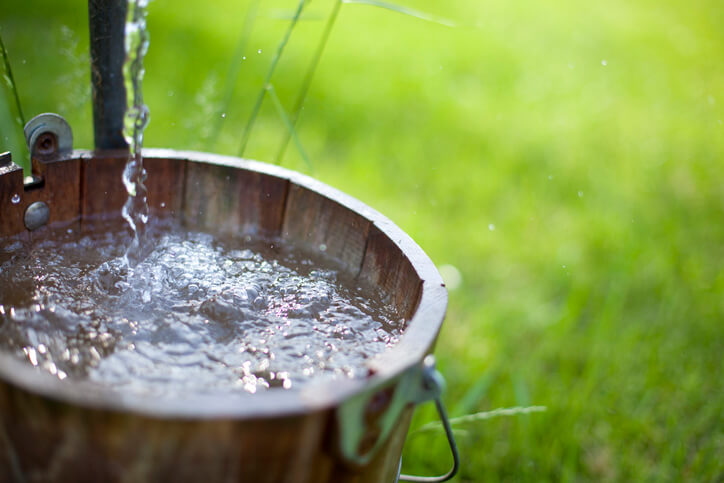In Florida, a majority of homeowners make use of groundwater wells. Many Floridians can go years using their well water for bathing, drinking, laundry, and so on, without running into any issue. However, that doesn’t mean problems won’t develop in the future. The day may come where a homeowner turns their tap and out pours discolored, murky, rancid water. When that happens, identifying the underlying problem will be the first step in restoring your water supply to a state that is clean and safe for consumption.
To aid in that endeavor, the Ocala plumbers of Sunshine Plumbing and Gas outline some of the most prevalent issues and contaminants well users may face.
Contact our trusted plumbing company today to request a free estimate on any of our plumbing services!

Hard Water
Water that contains high levels of dissolved calcium and magnesium is referred to as hard water. Although hard water poses no immediate threat to one’s health, beyond drying out their skin, it can corrode household faucets and appliances. This water problem is notably common across the United States and is characterized by symptoms such as:
- Clothes Losing Color & Feeling Rough After A Wash
- Scale Build-Up On Faucets
- White Residue On Dishes
- Stained Sinks & Bathtubs
- Mineral Accumulation Causing Clogged Pipes
Hard water can become an expensive problem if left untreated, damaging household appliances, corroding plumbing, and ruining clothes over time. The most effective way to combat hard water is by adding a water softener to your filtration system. Sunshine Plumbing and Gas offers numerous cost-efficient water softening systems!
Hydrogen Sulfide
Hydrogen sulfide is a naturally occurring colorless gas that can give affected well water a rotten egg taste. A well that’s become infested with sulfate-reducing bacteria is liable to produce hydrogen sulfide. Common symptoms of hydrogen sulfide include:
- Odorous Water
- Discolored Silverware
- Stained Laundry
- Stained Bathroom Fixtures
While hydrogen sulfide isn’t outwardly dangerous dissolved, it’s corrosive and can damage plumbing in its gaseous form. In large quantities, the gas can even cause an explosion, as it is flammable. If your well water begins to reek like rotten eggs, consider having your well disinfected.
Acidic Water
Water with a pH level that’s less than 7 is acidic. When your water’s pH reaches acidic levels, whether due to acid rainfall or plant decomposition, it will begin to corrode your plumbing, increasing the odds of leaks or burst pipes. Look out for these common signs of acidic water:
- Metallic-Tasting Water
- Corroded Faucets & Fixtures
- Rusty Stains In Tubs & Sinks
- Leaks In Plumbing
To protect against acidic water, consider investing in an acid-neutralizing filter. If acidic water ever causes a pipe to burst, don’t hesitate to contact our plumbers for emergency plumbing services!
Fecal Bacteria
Fecal bacteria can infiltrate wells in a few different ways, most commonly via septic tank or sewage overflow, runoff from agricultural sites, and seeping in through cracks in well walls. Fecal bacteria present in human and animal waste can pose serious health risks to those unlucky enough to consume it. Common signs well water has been affected by fecal bacteria include:
- Gastrointestinal Distress
- Unpleasant Odor
If you believe your well water has been contaminated with fecal bacteria, the best course of action is killing it off with chlorine.